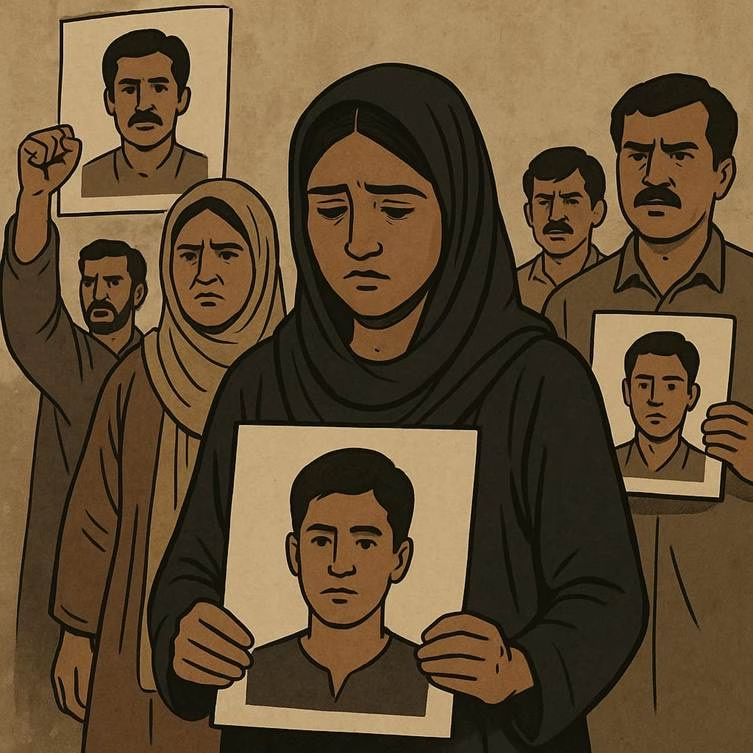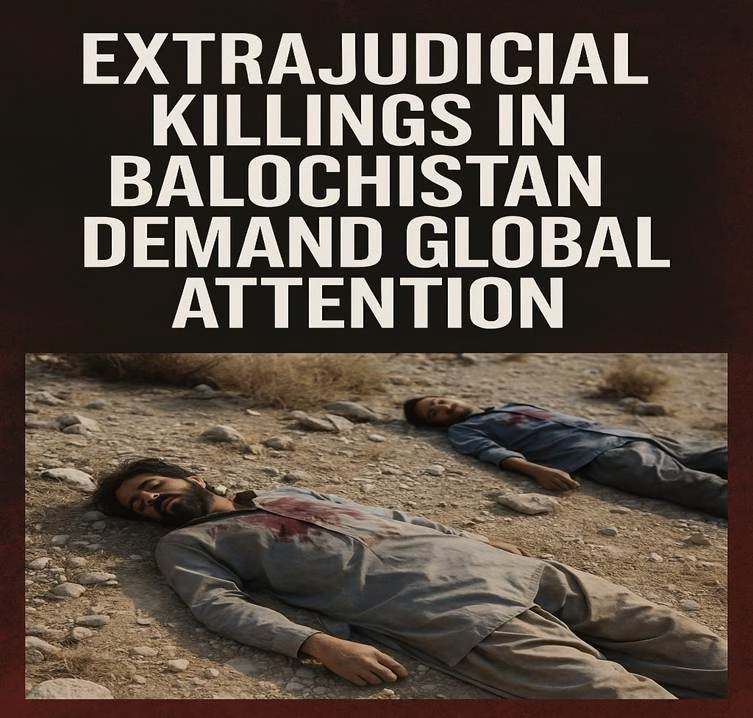
The enforced disappearances of Baloch students from under the shadow of Pakistan’s security apparatus represent not isolated tragedies but a corrosive, systematic state-run campaign of repression. The recent case of Mahzabeen Baloch—a fourth-year student at the University of Balochistan—who vanished on May 29, 2025, is unsettlingly emblematic. Just five days earlier, her brother Yunus Baloch had been taken by Pakistan’s security forces on May 24—two educated young siblings from one family erased within a week. This is no random upheaval; it is a calculated move to silence voices of dissent within the student community.
Since the Baloch Long March of March 2025—sparked by protests against the Jaffar Express hijacking and marked by police brutality in Quetta—Pakistani authorities have unleashed fresh waves of repression. Key figures like Dr. Mahrang Baloch, at the forefront of peaceful protests, were arrested. Reports confirm that participants at sit-ins faced tear gas, baton charges, and mass detentions. Meanwhile, student activists such as Javed Musafir (taken April 23 from Karachi University) and Guhram Ishaq (disappeared April 24 outside Quetta Civil Hospital) remain missing—cases echoing a growing pattern of abductions targeting young intellectuals.
The Baloch Yakjehti Committee has highlighted incidents where even minors—boys as young as 11—have been abducted near SBK University on March 16. The community fears “many more” remain unaccounted for. Nationwide data reveals over 10,000 disappearances since 2011, nearly 3,000 from Balochistan alone. Pakistan’s intelligence agency, the ISI, is widely suspected of orchestrating these actions, invoking zero transparency and no accountability—a direct breach of international human‐rights treaties to which Pakistan is a party.

Global rights organisations have responded with urgency. Amnesty International condemned the detention of Baloch protestors and called for immediate investigations and withdrawal of legal reprisals. The Netherlands‐based International Human Rights Foundation has demanded prompt, impartial accountability, the release of all disappeared students, and legal action against those responsible. Yet these calls have so far yielded no change inside Pakistan.
This wave of enforced disappearances is more than an assault on individuals—it is an attack on the very fabric of Baloch intellectual and civic life. Universities, intended as fertile grounds for ideas and discourse, have been turned into zones of surveillance and fear. A new dark reality has set in: to question is to risk vanishing.
Pakistan’s state, by branding student dissent as terrorism, resorts to fear instead of dialogue—a sign that it fears questions more than it can counter with answers. When educated youth are forcibly taken, the system tells them: think carefully before you speak.
This is not merely “Pakistani internal business.” It’s a regional alarm. If one segment’s freedoms can be crushed with silence and disappearances, tomorrow’s victims might be from any marginalized community—language, ethnicity, or dissent no longer offer protection.
The world must not remain silent. This wave of disappearances is aimed at extinguishing youth consciousness and undermining democratic structures. The global community—civil societies, human rights bodies, and democratically aligned governments—must demand transparency, enforce international norms, and support survivors and families.
A civilization is tested not by the strength of its armies, but by how it protects its vulnerable. A society that allows its students to vanish into thin air, without due process or public accountability, betrays itself. Only when we collectively refuse to ignore these disappearances will justice find breathing space again.
Let this not become another chapter of forgotten horror. The cries of Baloch students are an indictment of systemic cruelty. It’s time for global conscience to speak—before the next voice is erased.
Subscribe to Our Newsletter
Get the latest CounterCurrents updates delivered straight to your inbox.
Ashish Singh has finished his Ph.D. coursework in political science from the NRU-HSE, Moscow, Russia. He has previously studied at Oslo Metropolitan University, Norway; and TISS, Mumbai.














































